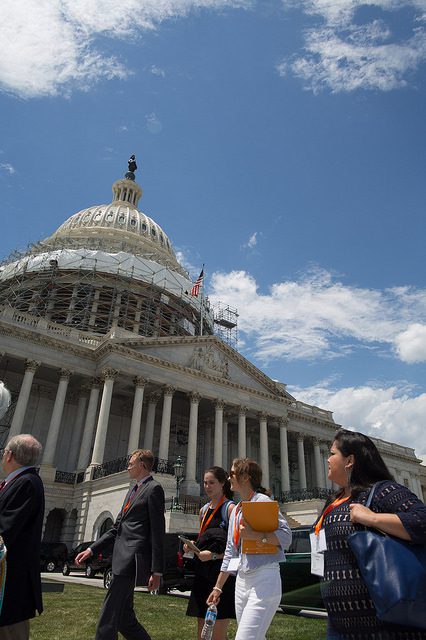Washington, D.C. – Bread for the World applauds final passage of the Global Food Security Act of 2016 (S. 1252) in Congress today. The bipartisan legislation, which passed 369-53, will help alleviate hunger and malnutrition in developing countries. The bill now goes to President Obama for his signature.
“We commend Congress for passing this crucial, bipartisan legislation in an election year when it has been difficult to pass other bills,” said David Beckmann, president of Bread for the World. “The bill calls for a global food security strategy that fights hunger and malnutrition and strengthens food production.”
The bill had broad support in Congress, including over 140 co-sponsors from both political parties. It will benefit many of the more than 795 million chronically malnourished people, including 159 million children, worldwide. The legislation will also improve maternal and child nutrition, especially in the key 1,000 days between a woman’s pregnancy and her child’s second birthday.
The bill puts in place a strategy, similar to the successful Feed the Future initiative, for the U.S. government to help hungry nations develop smart, long-term agriculture programs. Last year, Feed the Future helped nearly 7 million smallholder farmers and reached more than 12 million women and children with vital nutrition programs.
This legislation also authorizes International Disaster Assistance programs, including a program focused on flexible emergency food assistance. This is how the U.S. is feeding Syrian refugees in Jordan, Lebanon, and Turkey, and was able to quickly provide life-saving food assistance in the Philippines and Nepal.
“U.S. leadership is vital in the fight against hunger, malnutrition, and extreme poverty,” Beckmann said. “This vote shows that ending hunger and poverty is not a partisan issue. The bill will help strengthen communities and develop stronger trading partners for our country, creating a more stable and secure world.”
The passage of the Global Food Security Act is a major victory for Bread’s members and partners who have lobbied for it since last year. They personally lobbied their members of Congress, and communicated with them through thousands of letters, emails, and phone calls.



